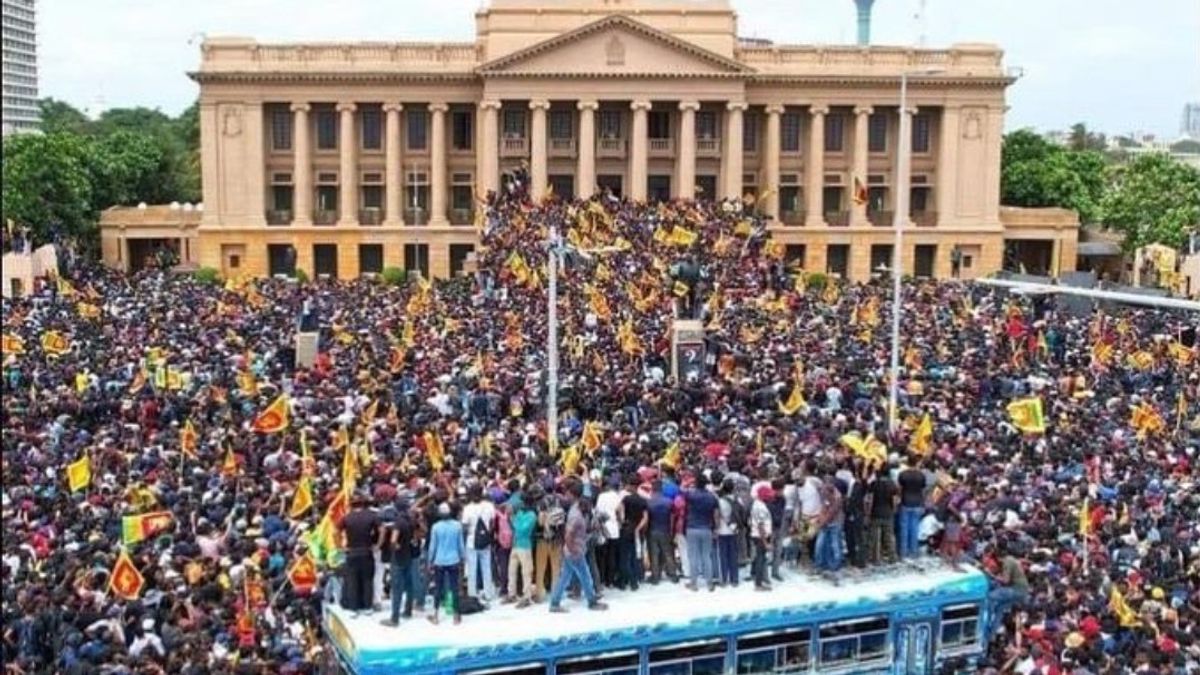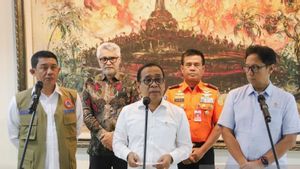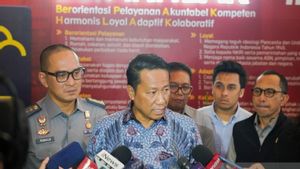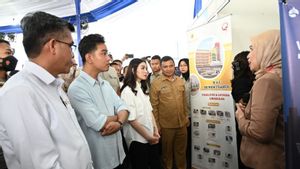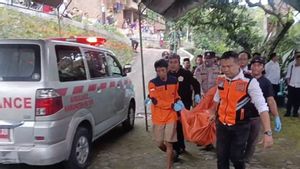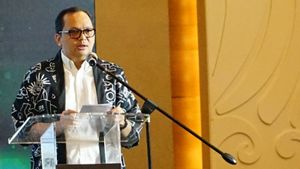JAKARTA - The COVID-19 pandemic that has occurred since 2020 has ravaged the world economy. A number of countries are experiencing economic crises. In fact, Sri Lanka is threatened with bankruptcy.
The tourism sector, which was predicted to increase the state's opinion, did not meet expectations due to travel restrictions during the pandemic. Not to mention, the failure to produce rice, which was previously exported to a number of countries, has turned around. Sri Lanka inevitably has to import to meet the needs of its more than 23 million population.
Even that is still not enough because the country's foreign exchange reserves are limited. Rice in the last 6 months experienced scarcity. Authorities also rationed the sale of powdered milk, sugar and other staples. According to the Firstpost page, food prices rose by 21.5 percent in December 2020 from only 16.9 percent the previous month.

Fuel oil and electricity conditions are also not too different. Overall, consumerism prices rose to 14 percent in December 2021.
The Central Bank of Sri Lanka (CBSL) has also raised its benchmark interest rate by 100 basis points or 1 percent to curb soaring inflation. The lending rate was raised to 15.50 percent, while the deposit rate rose to 14.50 percent, the highest in 21 years.
CNBC said Sri Lanka's inflation had touched a record 54.6 percent in June 2020, specifically food inflation rose to 80.1 percent. The LKR currency has depreciated more than 63% against the US dollar so far this year. The LKR rupee exchange rate fell sharply from 198.85 LKR in December 2021 to 363.93 US dollars on Monday (11/7) trading. This is the worst economic crisis since Sri Lanka's independence in 1948.
The masses act anarchyThe people immediately reacted so that the government could fix this condition. Riots occurred in several cities. The curfew was unable to quell the demonstrators' anger, instead encouraging more people to take to the streets.
According to reports, nine people were killed and hundreds injured when clashes erupted across the country after Sri Lankan President Gotabaya Rajapaksa loyalists attacked peaceful protesters outside the president's office in May.
This action made the demonstrators even more anarchic. On Saturday (8/7), thousands of demonstrators stormed the residence of President Rajapaksa in Colombo City. Not only the police, the authorities have even deployed soldiers armed with assault rifles to secure the president out of his residence. Inevitable clash. The demonstrators were finally able to break down the barricades and enter the palace.
In a video on social media, after the presidential residence was successfully occupied, they ransacked every room, some people taking advantage of existing facilities. Some were swimming in the swimming pool, until there were demonstrators who entered the president's room while counting the money they claimed was found there.

The residence of Sri Lankan Prime Minister Ranil Wickremesinghe did not escape the anger of the masses. CNN reports on Sunday (10/7), the demonstrators set it on fire. Wickremesinghe himself was not at his residence. He was successfully evacuated to a safe place.
"The president must resign, the prime minister must resign and the government must resign," one demonstrator said.
Overcoming the pressure, President Rajapaksa finally agreed to resign. According to The Guardian, parliament speaker Mahinda Yapa confirmed that the president would step down from power on July 13, 2022, to ensure a peaceful transition of power.
Prime Minister Wickremesinghe has also told a meeting of party leaders that he will step down as soon as a new all-party government is formed.
Similar to Indonesia 1998Indonesia has also experienced a similar crisis. To be precise, it happened in 1998. The exchange rate of the rupiah against the US dollar declined sharply to reach Rp. 16,650 thousand per US dollar on June 17, 1998 from only Rp. 2,000 per US dollar two years earlier.
The increase began to occur since October 1997 around Rp. 3,500 per US dollar. Then, it jumped to Rp12,950 per US dollar at the end of January 1998. The rupiah fluctuated during the period January-May 1998, then increased again after President Soeharto stepped down.
Conditions at that time were not much different from Sri Lanka today. Prices of basic commodities soared. The inflation rate reached 70 percent. Likewise, bank interest rates also jumped to 70 percent.
Various elements of society ranging from students, workers, to the elite began to speak out. Demonstrations took place in various cities. They forced President Suharto to resign because of his inability to control the country's economic conditions after 31 years in power. Eradicating Corruption, Collusion and Nepotism (KKN) has become the jargon of resistance.

The demonstration, which was initially conducive, turned anarchic. The people began to be brutal. The looting of supermarkets, shop houses, markets occurred and even spread to elite residential areas. On May 14, 1998, the capital city of Jakarta was filled with fire and thick smoke from a number of burning buildings.
Thousands of students rushed to government offices. On May 18, 1998, they succeeded in occupying the DPR/MPR Building in Senayan, Jakarta and only disbanded after President Suharto declared his resignation on May 21, 1998.
Based on a report by the Joint Fact-Finding Team (TGPF), around 1,190 people died in the May 1998 riots in Jakarta, 27 of them were killed by weapons, the rest were caused by fire. Then, 91 women became victims of rape.
Data from the Volunteer Team for Violence Against Women stated that the number was higher. Victims of rape in Jakarta and its surroundings on 12 May-2 June 1998 reached 152 people, 20 of whom died.
After President Suharto stepped down, the atmosphere was conducive again. The successor government issued new ideas to overcome the economic crisis. Sri Lanka is not impossible to have the same fate. After the President and Prime Minister resign, the situation will return to control.
The English, Chinese, Japanese, Arabic, and French versions are automatically generated by the AI. So there may still be inaccuracies in translating, please always see Indonesian as our main language. (system supported by DigitalSiber.id)
